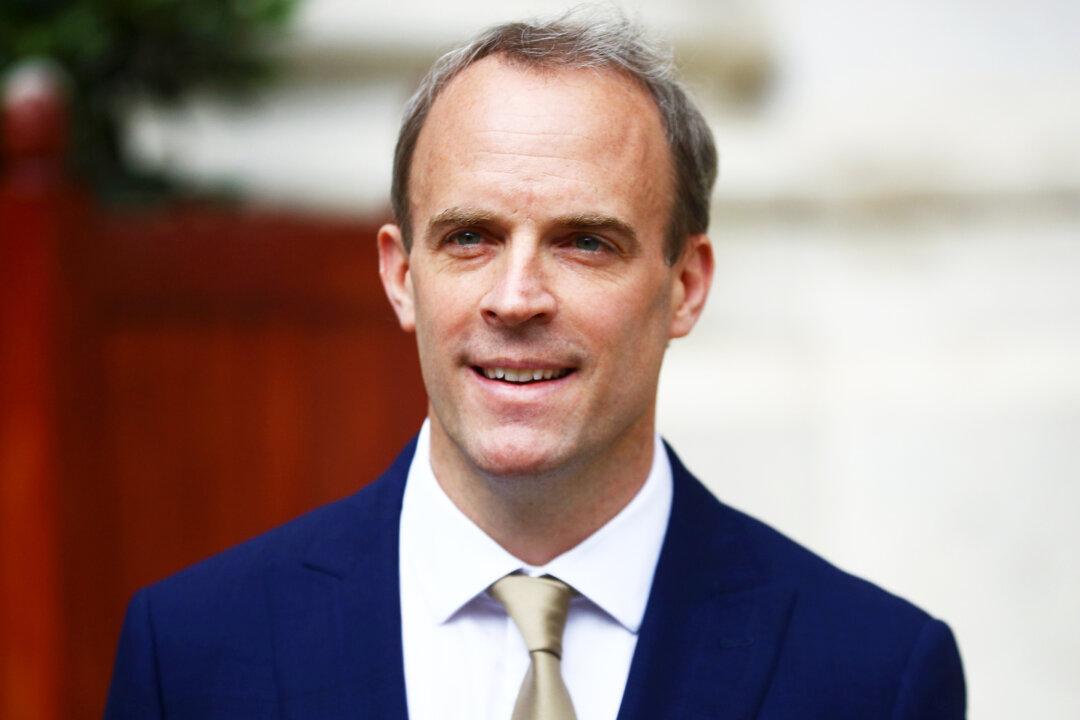LONDON—Britain will on Monday suspend its extradition treaty with Hong Kong in a further escalation of its dispute with China over the introduction of a security law in the former colony, The Times reported.
Foreign Secretary Dominic Raab, who on Sunday accused China of “gross” human rights violations, will announce the suspension of the treaty in parliament, the Times and Daily Telegraph newspapers said, citing sources.





